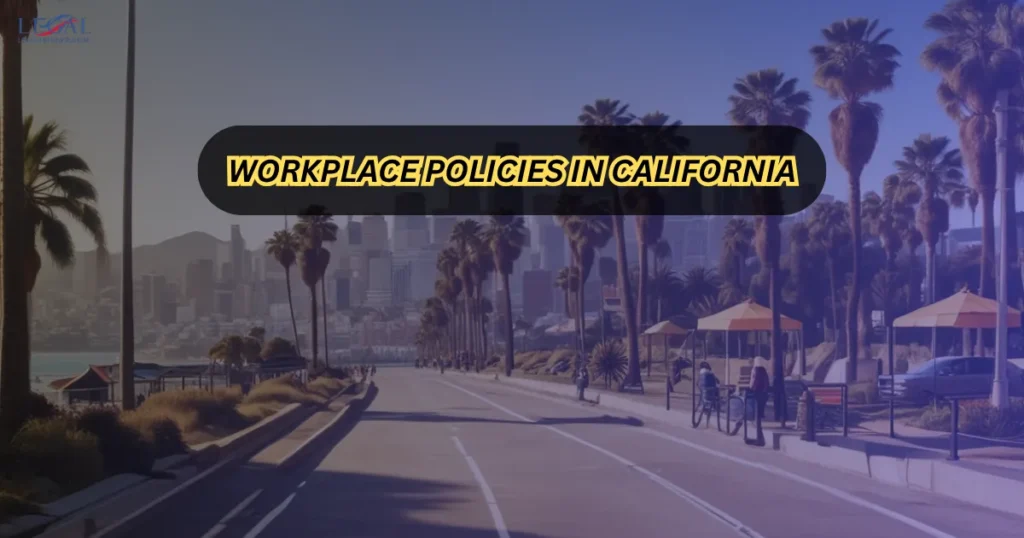Physical Address
304 North Cardinal St.
Dorchester Center, MA 02124
Physical Address
304 North Cardinal St.
Dorchester Center, MA 02124

Workplace Policies in California shape the everyday environment of employees and employers alike. They’re not just rules tucked away in an employee handbook—they are the blueprint for how your organization operates, communicates expectations, and complies with state law.
Imagine starting your first day at a new job: you’re eager, maybe nervous, and you’re handed a stack of documents. Somewhere in that paperwork lies an outline of how your time, behavior, rights, and benefits will be managed. Those workplace policies, if clear and up-to-date, create trust and reduce confusion. But if they’re outdated or unclear? You risk misunderstandings, compliance trouble, and even costly legal battles.

This comprehensive guide answers the most frequently asked questions about workplace policies in California. Whether you’re an employer drafting rules or an employee trying to understand your rights, these FAQs will give you the clarity you need.
For more legal guides and workplace compliance resources, visit our homepage.
Workplace policies are formal statements that set out the standards, procedures, and expectations for employees. In California, they often cover:
Relevant authority sources include:
While not every policy is legally mandated, certain policies are required by California law, such as harassment prevention, wage/hour compliance, and safety policies under Cal/OSHA.
At least annually, or immediately following any changes in state or federal law.
It’s best practice. Signed acknowledgments offer legal protection by confirming employees have read and understood policies.
Employers with five or more employees must provide written anti-harassment policies and conduct sexual harassment prevention training.

The law takes precedence. Any policy that violates state or federal law can be deemed unenforceable.
Yes. Remote or hybrid work arrangements should address hours, communication expectations, cybersecurity, and ergonomic safety.
Yes, but you must communicate changes immediately to all employees and ideally obtain updated signed acknowledgments.
Yes. Cal/OSHA requires employers to have an Injury and Illness Prevention Program (IIPP) in writing.
DIR enforces labor laws, wage and hour compliance, occupational safety standards, and workplace conditions.
Yes. Employees can propose changes, especially regarding safety, fairness, or compliance issues.
Clear policies outline consequences of misconduct and guide fair enforcement, reducing risk of wrongful termination claims.
If a significant portion of your workforce speaks a language other than English, it’s a best practice (and sometimes required) to provide policies in that language.
Follow progressive discipline procedures aligned with your written policies, making sure they comply with California employment law.

Policies ensure that your workplace meets California’s high legal standards.
Clear rules create fair treatment and reduce misunderstandings.
Workplace Policies in California are more than formalities—they are your organization’s foundation. When crafted well, communicated clearly, and regularly updated, they protect both you and your employees. They create trust, ensure compliance, and encourage a collaborative and fair environment.
Start today: review your policies, fix outdated rules, train your team, and make sure every employee understands their rights and responsibilities.
For more workplace compliance resources, visit our homepage.